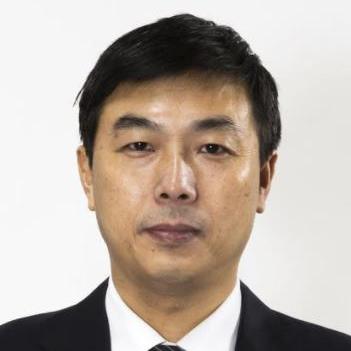Joining the flags of more than 150 other countries, the Cuban flag was hung in the lobby of the U.S. State Department on July 20, followed by a flag-raising ceremony to mark the re-opening of the Cuban embassy in Washington and the restoration of full diplomatic relations between the U.S. and Cuba.Later that day, the U.S. Secretary of State John Kerry met with Cuban foreign minister Bruno Rodríguez. Kerry will travel to Havana in August to preside over a flag-raising ceremony at the U.S. embassy there.
Since last December, the U.S.-Cuba relationship has entered the fast-track lane with a series of interactions, including Barack Obama and Raúl Castro’s respective speeches that kicked off the normalization of bilateral relations, their historical meeting at Summit of Americas and four rounds of normalization talks between high-level diplomats.
Despite the fact that the last few months have seen the U.S.-Cuba thaw is unfolding quickly, the development of formal relations is likely to enter a slow-track lane, as some deep-seated differences will not disappear in a short time and further tangible achievements will be harder to achieve.
The biggest obstacle is still the economic blockade the U.S. imposes on Cuba. America’s executive and legislature power structure has determined that the blockade will not be lifted in the short term. There are multiple acts in effect that impose sanctions on Cuba, including Helms-Burton Act, passed in Congress and signed by then President Clinton in 1996.The Cuban government has long called for elimination of the economic blockade. The Cuban foreign minister explicitly stated that “the historic events we are living today will only make sense with the removal of the economic, commercial and financial blockade, which causes so much deprivation and damage to our people, the return of occupied territory in Guantánamo, and respect for the sovereignty of Cuba”. However, as these abolishing acts require passage in the Congress, and since Republicans control Congress and many Republican congressmen oppose abolishing sanctions, lifting of all sanctions against Cuba is very unlikely in Obama’s tenure.
Even on the operational level, Congress is able to make trouble in embassy funding and ambassador appointment. Republican senators and presidential candidates Marco Rubio and Ted Cruz have pledged to oppose funding the embassy in Congress and reject any ambassador appointments in the Senate confirmation hearing, unless the Obama administration is able to make Cuba lift its restrictions on U.S. diplomats and promised more political freedom. Recently, Rubio wrote an op-ed called “Obama’s Faustian Bargain with Cuba” in the New York Times, strongly denouncing Obama’s Cuba policy. If Rubio wins the White House, it could be a disaster for the U.S.-Cuba relations, sending them off-track instead of on the slow-track. Fairly speaking, any Republican candidate who wins the election is likely to at least slow down the development of the bilateral relations.
On the Cuban side, after decades of blockade, the sense of wariness and suspicion towards the U.S. from the leadership to ordinary people is hard to dispel overnight. Raúl Castro stressed thawing relations with the U.S. based on UN Charter and Vienna Convention, and mutual respect and non-interference as preconditions in his letter addressed to President Obama. Cuba also stressed in its negotiation with the U.S. that the two countries haven’t reached consensus on immigration, human rights, free passage of diplomatic personnel, the issue of returning Guantánamo, and compensation of sanction loss, and the normalization process will be long and complicated.
Despite all above, the future in general is still promising. Both countries have their own fundamental reasons to improve the relations. The normalization will bring tangible benefits to U.S. citizens, who would have more opportunities to visit Cuba and use their credit cards there, and to U.S. companies, which would have more access to Cuba, the largest country in the Caribbean by size and population. Politically speaking, U.S. intends to promote its values, namely “democracy and human rights”, in Cuba by an engaging and flexible approach rather than an isolating and rigid one. Cuba also needs to increase engagement with its neighbor. From 2011, Cuba has speeded its economic reform while facing numerous difficulties, especially the lack of external support due to the U.S. embargo. Cuba’s annual GDP growth rate in 2013 was 2.7%, far less than 3.6% expected by the government.Due to the Ukraine crisis and dropping oil prices, Cuba’s important trading partners Russia and Venezuela both had their own hard times and could hardly be counted on.
As for China, it might have not played a direct role in the process of U.S.-Cuba thaw, but it was reported that Cuba sent an expert on American Studies to China last year to learn the history and experience of China-U.S. normalization. Considering both presidents Obama and Castro would like to grasp the precious opportunity to create positive momentum to improve the relations before the change of leadership, the possibility an Obama visit to Cuba before he leaves the White House can’t be ruled out. The two countries may follow China’s model to issue a joint communiqué, making clear positions respectively and reach consensus on certain issues, which will bring the bilateral relations to a new height.
China is delighted to share its experience with Cuba because the normalization also brings benefits to China. Some scholars held that after the normalization, the U.S. will undermine China and Russia’s economic relations with Cuba, saying that the U.S. is consolidating its “backyard” and fending off China’s influence in Latin America by improving its relations with Cuba. Yet, that argument is a remnant of the Cold War mentality which perceives the normalization in the perspective of “zero-sum game”. As a longtime friend of Cuba, China is more than happy to see the improving international environment and the economic development of the country, because it is beneficial for the two sides to carry on the traditional friendship and win-win cooperation.
On one hand, China is one of Cuba’s biggest markets and suppliers of goods. According to the European Commission, China ranked third among Cuba’s trading partners, accounting for 12.7% of Cuba’s total trade share in 2013, after Venezuela and the EU. The improvement in the trade and investment environment in Cuba will provide Chinese enterprises with more opportunities to do business with Cuba. On the other hand, the U.S. factor will no longer play a negative role in China-Cuba relations. Before the thaw, the U.S. criticized the interactions between China and Cuba. In the future, the blame and obstruction will be mitigated. Moreover, China and the U.S. do not and should not have strategic competition in Cuba and Latin America at large while both share common interests in the region. Instead, the possibility of cooperation should be explored while China, with capabilities of infrastructure development and investment, and the U.S., with new technologies and managing expertise, could play complementary roles to reach “win-win-win” results.


